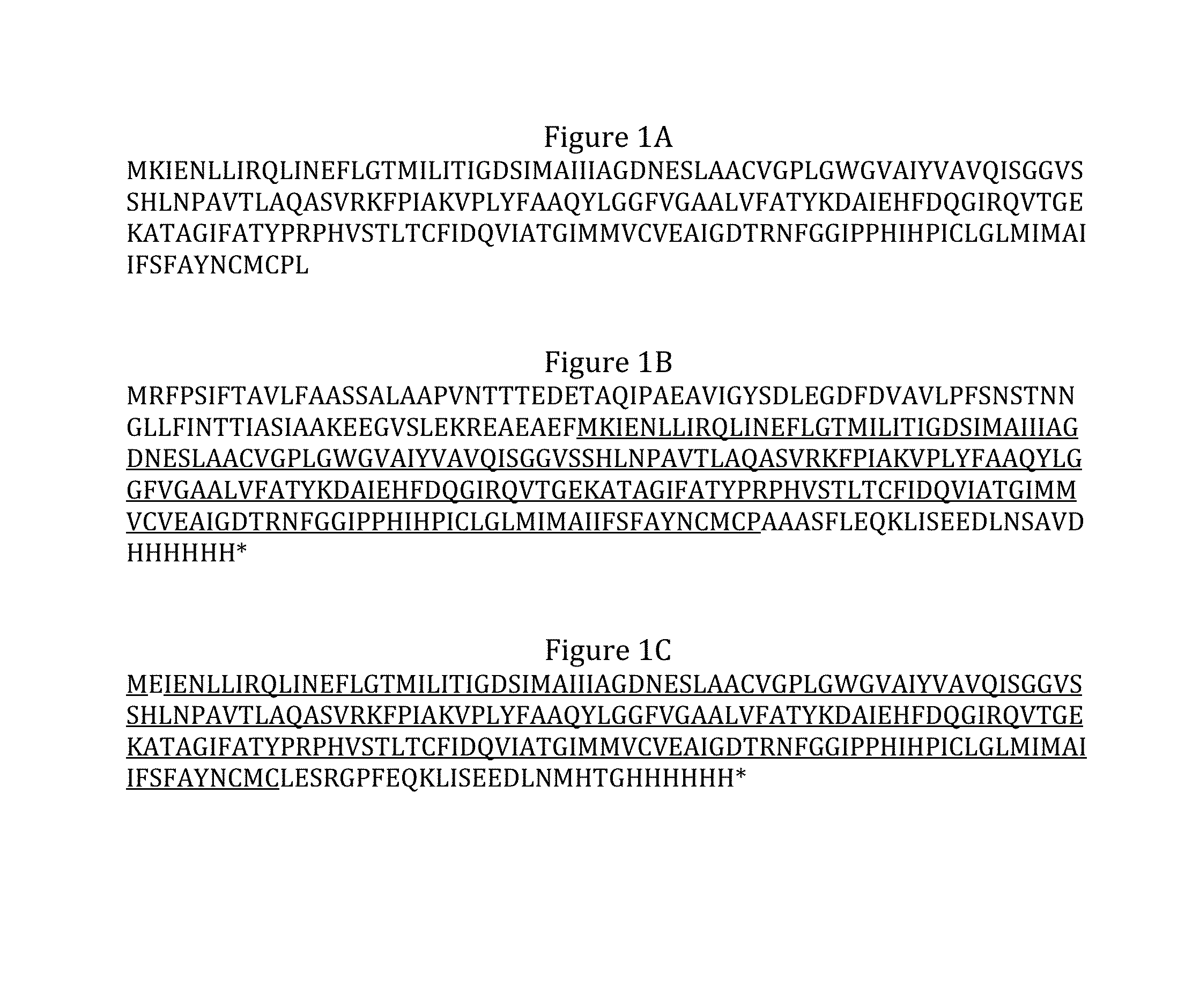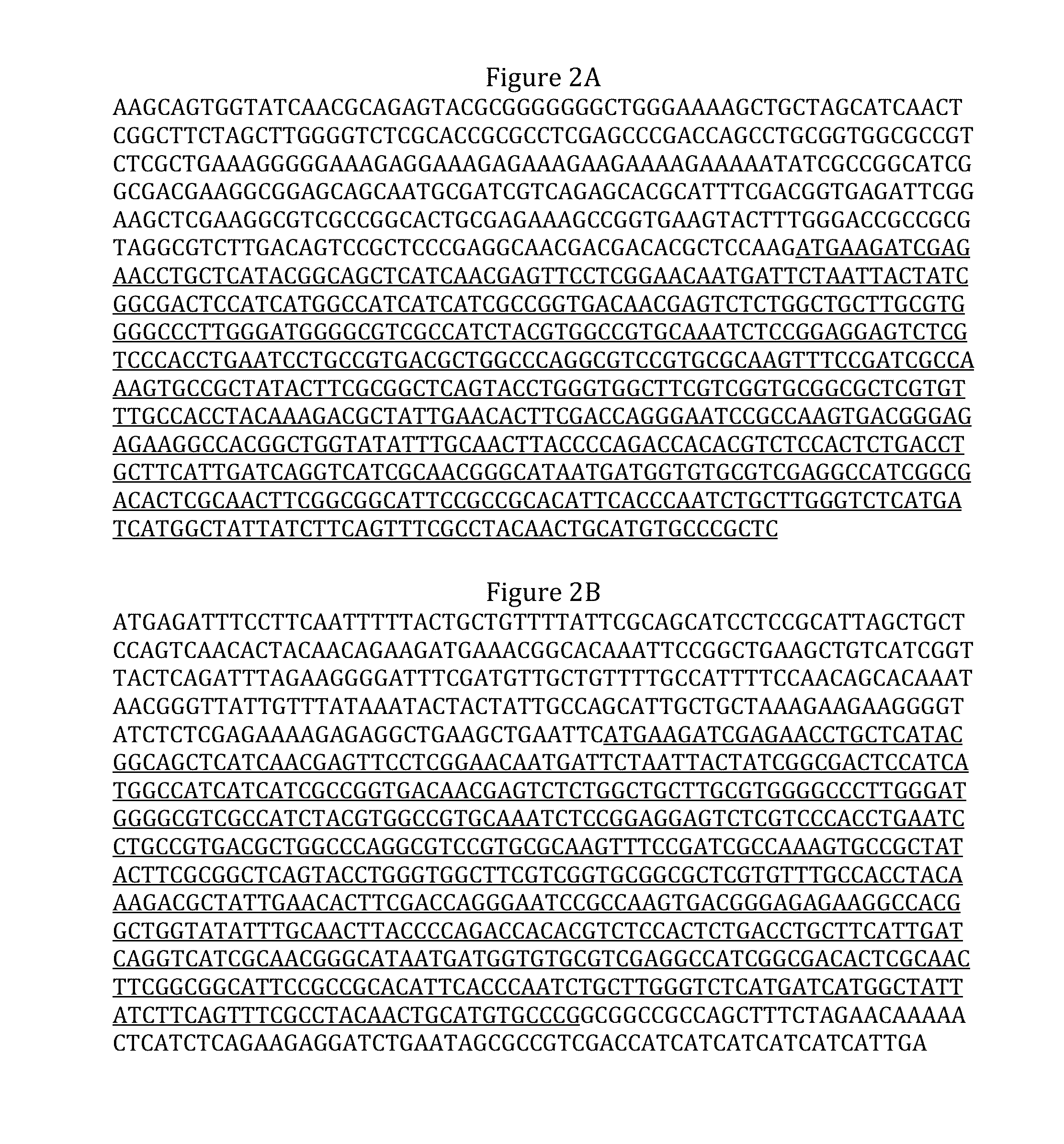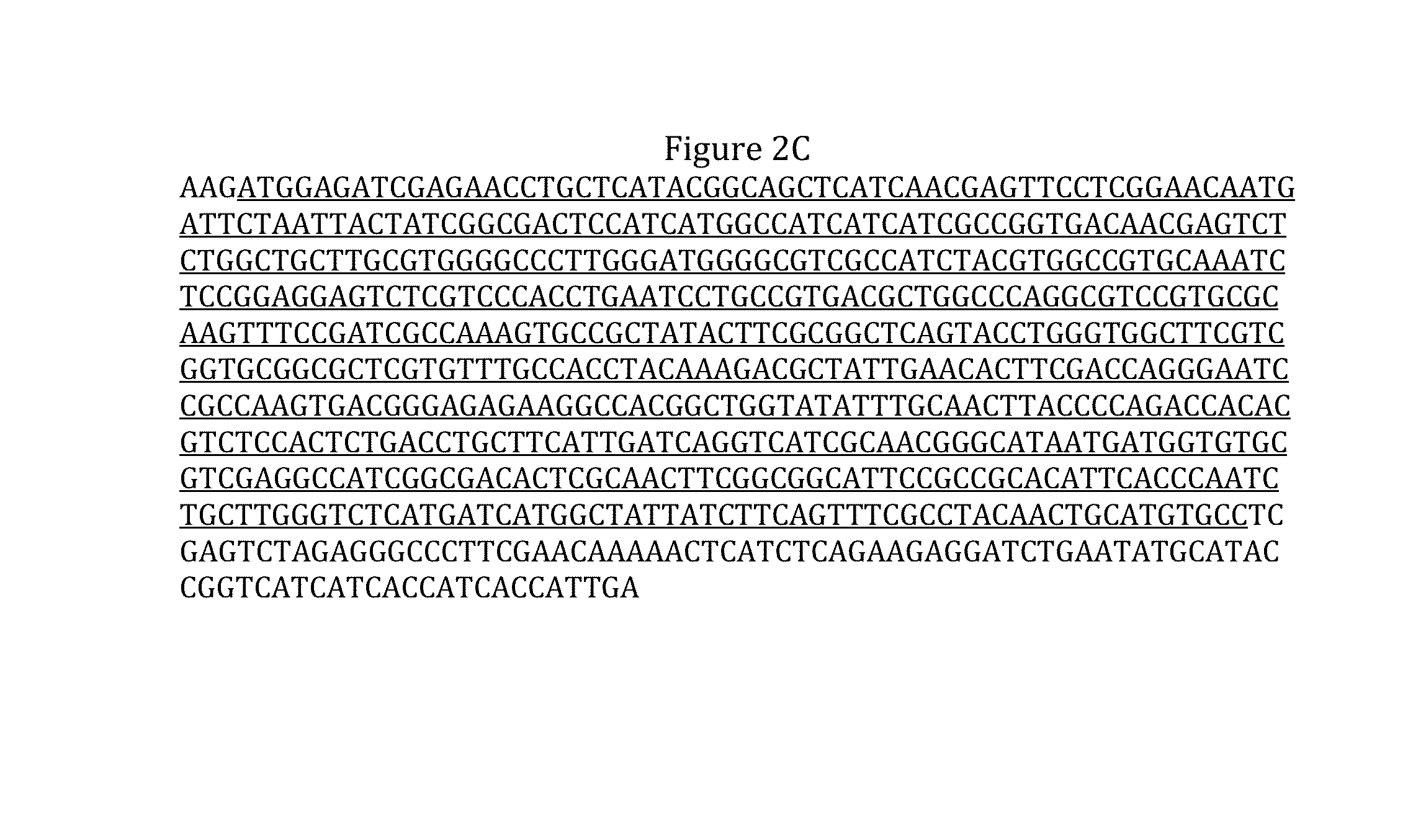Vaccination of animals to elicit a protective immune response against tick infestations and tick-borne pathogen transmission
a technology of immune response and vaccination, which is applied in the field of vaccination of animals to elicit a protective immune response against tick infestation and tickborne pathogen transmission, can solve the problems of cattle fever transmission risk, constant threat of re-establishment of this tick in the us, etc., and achieves the reduction or elimination of the infestation of the treated animals, effective control of cattle tick infestation, and the effect of reducing the incidence of cattle tick infestation
- Summary
- Abstract
- Description
- Claims
- Application Information
AI Technical Summary
Benefits of technology
Problems solved by technology
Method used
Image
Examples
example 1
Material and Methods
Ticks
[0078]Tick larvae used in this study to infest cattle for the cattle vaccine trials were obtained from a laboratory colony maintained at EMBRAPA Beef Cattle. The colony was established with R. microplus ticks collected from infested cattle in Campo Grande, MS, Brazil (Casquero-Cunha et al. In press). Fully engorged adult female ticks were collected upon host detachment and brought to the laboratory to allow oviposition. Egg masses were incubated in humidity chambers at 28° C. and 95% relative humidity to facilitate hatching. Larvae were used for infestation at 18 days after hatching. Nucleic acids were obtained from engorged adult female Rhipicephalus (Boophilus) microplus of the f20 La Minita strain maintained at The University of Idaho Holm Research Center (Moscow, ID). The La Minita strain was originally collected in 1996 during an outbreak in Starr County, Tex. and propagated at the USDA-ARS Cattle Fever Tick Research Laboratory in Edinberg, Tex. (Guerre...
PUM
| Property | Measurement | Unit |
|---|---|---|
| molecular weight | aaaaa | aaaaa |
| molecular weight | aaaaa | aaaaa |
| molecular weight | aaaaa | aaaaa |
Abstract
Description
Claims
Application Information
 Login to View More
Login to View More - R&D
- Intellectual Property
- Life Sciences
- Materials
- Tech Scout
- Unparalleled Data Quality
- Higher Quality Content
- 60% Fewer Hallucinations
Browse by: Latest US Patents, China's latest patents, Technical Efficacy Thesaurus, Application Domain, Technology Topic, Popular Technical Reports.
© 2025 PatSnap. All rights reserved.Legal|Privacy policy|Modern Slavery Act Transparency Statement|Sitemap|About US| Contact US: help@patsnap.com



